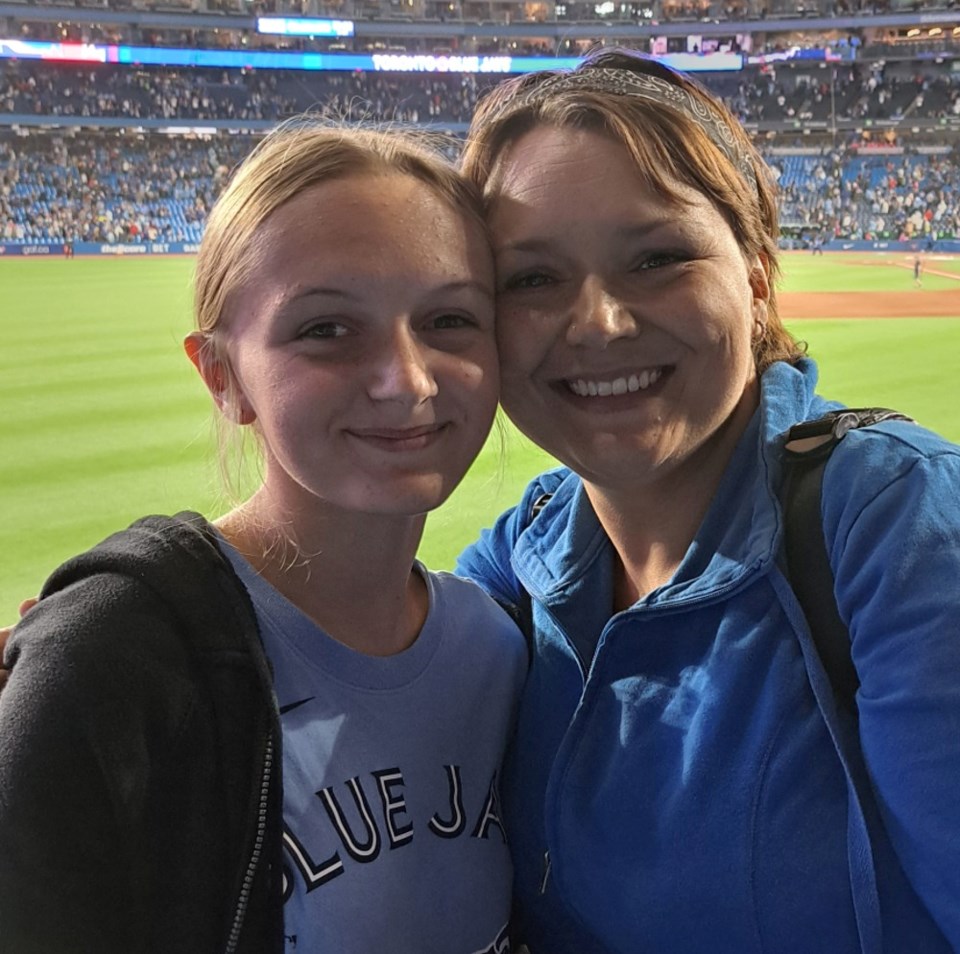In her fight with cancer, Newmarket resident Camille Leahy had to battle against more than just the disease.
Diagnosed with acute lymphoblastic leukemia in January 2020, Leahy described the struggles of going through various treatments. After having a cancer resurgence in 2021 and being unable to bear the idea of another long chemotherapy treatment separated from her family due to pandemic public health measures, she sought another option.
She found it in a clinical trial in Ottawa for a treatment called chimeric antigen receptor-modified T cells (CAR-T). After three attempts, she got into the trial — and it has given her a new lease on life, she said. She had a complete response, with no more cancer detected in her blood.
“Sometimes, we have to take it into our own hands and kind of push for those things,” she said.
Leahy is part of a group of about 30 to take part in the treatment, with the Ottawa Hospital and BioCanRx both promoting the results over the summer one year after the trial. It involves taking immune cells from a patient, genetically engineering them in a lab to enhance their cancer-killing ability, and then fusing them back into the same patient. Typically costly and with limited approval in Canada, the trial was the first CAR-T therapy manufactured within Canada.
It is meant as a final option, Leahy said. Her prognosis was bleak after she experienced her resurgence. She said it was difficult and took three attempts, with her first two thwarted by her health issues before she got in on the third try with her time running out.
“It wasn’t without some complications,” she said. “But the doctors felt, you know what, it’s becoming too dangerous to wait, and this was my only shot.”
According to the Ottawa Hospital Research Institute, access to the therapy is restricted only to those with a few kinds of leukemia and lymphoma, and only within some age ranges. It has also historically been expensive, requiring shipping to U.S. laboratories.
BioCanRX has sought to address that accessibility by manufacturing the treatments directly in Canada. The team behind it found that 13 of the first 30 patients had complete responses, and the company hopes to expand manufacturing to sites across Canada.
“Canadian patients deserve access to the best cancer treatments in the world, and we need Canadian research to make this happen,” Dr. Natasha Kekre, a scientist and hematologist at the Ottawa Hospital and principal investigator for the trial, said in a news release. “We’re very excited about the preliminary results of this trial, and we will be moving forward with new and exciting trials across Canada.”
Two of the patients had partial responses to the treatment, while five had their disease progressing. Nine patients have since passed away due to their cancer. The research institute said there are side effects such as cytokine release syndrome, with one patient dying of this, but that side effects in the trial “were lower than expected.”
Leahy has become a face for the trial and its promotional efforts. She said though she still has had some residual impact on her health from the therapies she received before CAR-T, she has felt much more normal in recent months.
“It’s very promising. Without it, I wouldn’t be here,” she said. “If I can help anybody else, that’s what I’m doing this for … I want even local people in my town to know not to give up.”
The mother has tried to make up for lost time this summer. She said she and her daughter have been attending Toronto Blue Jays games, and participated in a 5k mud run, as well as a treetop trek.
“I might be overdoing it a little bit, but that’s definitely the kind of stuff I wasn’t able to do,” she said. “I definitely see a bright future, which is something that I didn’t see when I was diagnosed.”



